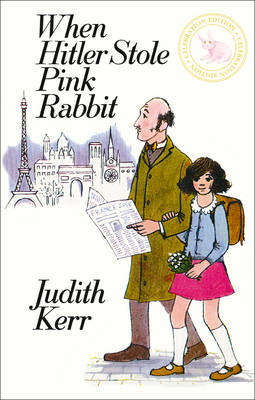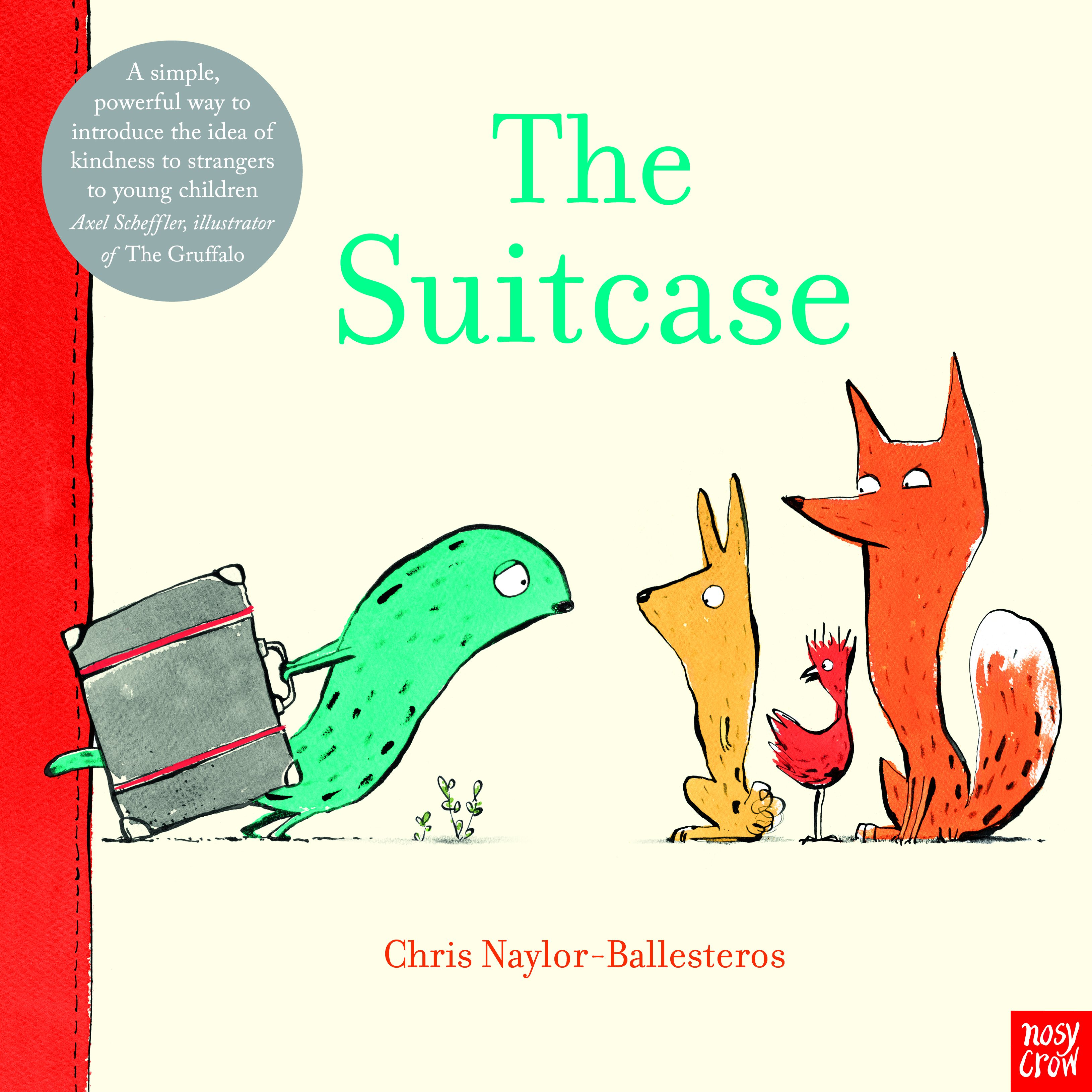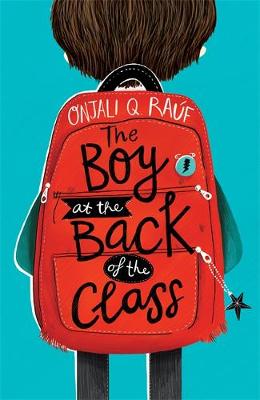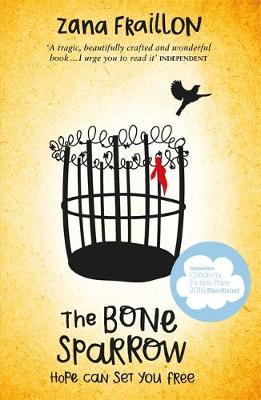refugee/rɛfjʊˈdʒiː/ : A person who has been forced to leave their country in order to escape war, persecution, or natural disaster.

The news of the death of the supremely talented Judith Kerr is a timely reminder of the positive contribution that refugees have made to our country. Judith Kerr arrived with her family in 1936, as a refugee escaping the Nazis, settled in Britain and became one of our best-loved authors and illustrators. Her first picture book was The Tiger Who Came to Tea, published over 50 years ago and still a favourite with pre-school children and their parents. Best known for her stories for younger children, her semi-autobiographical novel, When Hitler Stole Pink Rabbit, shone a light onto her own childhood fleeing Germany before the outbreak of the Second World War. You can read more about this extraordinary lady on her author page, where you can find a short video interview in which she discusses her arrival in London.
Britain has a long history of providing refuge to those in need. The French Protestant Huguenots, fleeing persecution in the 17th century, settled in London in large numbers, bringing with them silk weaving skills that came to define the area. Over the 19th and 20th century, after suffering sustained, repeated attacks, Jews from the Russian Empire sought safety in Britain, settling mainly in industrial areas, particularly London, Manchester and Leeds. War causes widespread displacement and both the First and Second World Wars saw huge numbers of European refugees seeking asylum. At the break of WW1 hundreds of thousands of Belgians sought safety in Britain as German forces invaded, some stayed and settled whilst others returned back home after the end of the war. The months before the Second World War saw another huge wave of refugees, many European Jews escaping the Nazi regime. The Kindertransport, a planned humanitarian effort with government support, saw nearly 10,000 Jewish children rescued from Germany and other hostile countries. Many of these children were the only ones in their families to survive the Holocaust.
These events are all part of our shared history but wars and conflict around the globe still continue to cause displacement and chaos. Barely a day goes by without the plight of refugees making headlines, whether through a tragedy, political conflict or a heart-rending tale of survival against the odds.
In response to this global crisis a number of books have been published which help our young readers understand the refugee situation and encourage them to make sense of a very difficult topic.
 In The Suitcase by Chris Naylor-Ballesteros the little animals were at first curious and then suspicious of the stranger who arrived, tired and bewildered, carrying a weathered suitcase. As they learn more about the stranger their feelings turn from fear to compassion in a very touching but honest tale. "Welcome and understanding are at the heart of this children’s book by Chris Naylor-Ballesteros. . . beautifully illustrated." Laura Padoan, spokesperson for UNHCR, the UN Refugee Agency (3+5+)
In The Suitcase by Chris Naylor-Ballesteros the little animals were at first curious and then suspicious of the stranger who arrived, tired and bewildered, carrying a weathered suitcase. As they learn more about the stranger their feelings turn from fear to compassion in a very touching but honest tale. "Welcome and understanding are at the heart of this children’s book by Chris Naylor-Ballesteros. . . beautifully illustrated." Laura Padoan, spokesperson for UNHCR, the UN Refugee Agency (3+5+)
 The Boy at the Back of the Class by Onjali Q. Rauf won the Best Story category in the Blue Peter Awards this year and has been shortlisted for The Branford Boase Award. It is a touching and clear-sighted child's-eye view of the problems facing refugees. "The plotline is very lively – it includes some excellent comic scenes at Buckingham Palace – and Raúf manages to keep the story positive and uplifting while still illustrating the cruelty and bigotry that refugees face." Andrea Reece, our expert reviewer. (7+9+)
The Boy at the Back of the Class by Onjali Q. Rauf won the Best Story category in the Blue Peter Awards this year and has been shortlisted for The Branford Boase Award. It is a touching and clear-sighted child's-eye view of the problems facing refugees. "The plotline is very lively – it includes some excellent comic scenes at Buckingham Palace – and Raúf manages to keep the story positive and uplifting while still illustrating the cruelty and bigotry that refugees face." Andrea Reece, our expert reviewer. (7+9+)
 The Bone Sparrow by Zana Fraillon, awarded the Amnesty CILIP Honour 2017, is a devastating novel about friendship, cruelty and resilience, set in a refugee camp. Our reader review panel found it captivating: 'a wonderful, thought-provoking and sad book' and 'It is definitely a book for today, addressing the global issue of refugees and displaced people. I really enjoyed this novel.' Zana Fraillon felt compelled to write her novel because she could not ignore the millions of people who were being forcibly displaced and the millions of children missing out on a childhood. Zana comments, “The Bone Sparrow was written so we remember the people behind the statistics. Those 65 million stories waiting to be told, those 33 million children wondering if their futures will ever be realised. It was written so we can find the courage to stand for humanity, and the wisdom to imagine a different world. It was written so we may all live in hope.” (11+13+)
The Bone Sparrow by Zana Fraillon, awarded the Amnesty CILIP Honour 2017, is a devastating novel about friendship, cruelty and resilience, set in a refugee camp. Our reader review panel found it captivating: 'a wonderful, thought-provoking and sad book' and 'It is definitely a book for today, addressing the global issue of refugees and displaced people. I really enjoyed this novel.' Zana Fraillon felt compelled to write her novel because she could not ignore the millions of people who were being forcibly displaced and the millions of children missing out on a childhood. Zana comments, “The Bone Sparrow was written so we remember the people behind the statistics. Those 65 million stories waiting to be told, those 33 million children wondering if their futures will ever be realised. It was written so we can find the courage to stand for humanity, and the wisdom to imagine a different world. It was written so we may all live in hope.” (11+13+)
National Refugee Week runs from 17 - 23 June and takes place every year, around World Refugee Day on 20 June. In the UK, Refugee Week is a nationwide programme of arts, cultural and educational events that celebrate the contribution of refugees to the UK, and encourages a better understanding between communities.
The theme of Refugee Week 2019, ‘You, me and those who came before’, is an invitation to explore the lives of refugees – and those who have welcomed them – throughout the generations.
Read more about National Refugee week, download resources and find special events near you at refugeeweek.org.uk
You can find more books on this theme in our Refugees - Books to raise awareness feature.



Comments (0)
Leave A Reply
You must be logged in to post a comment.